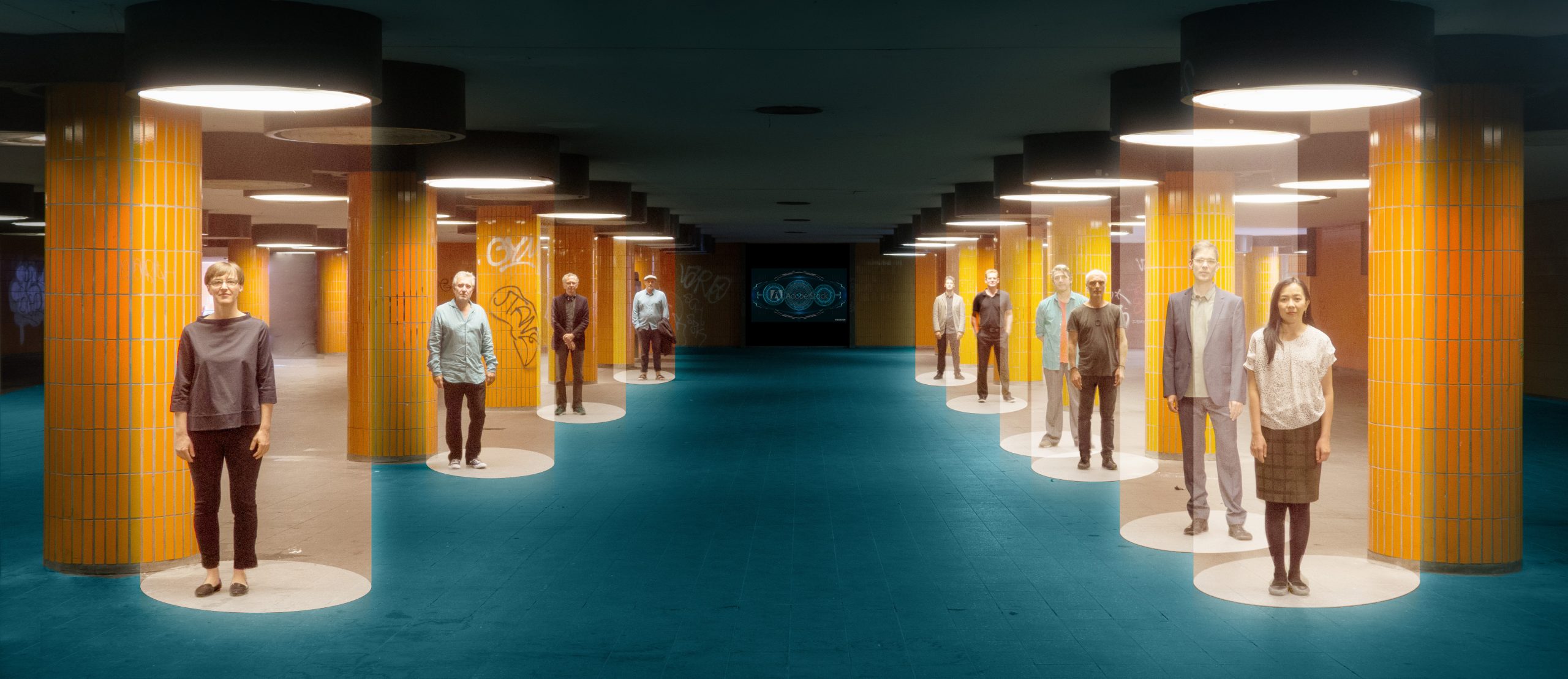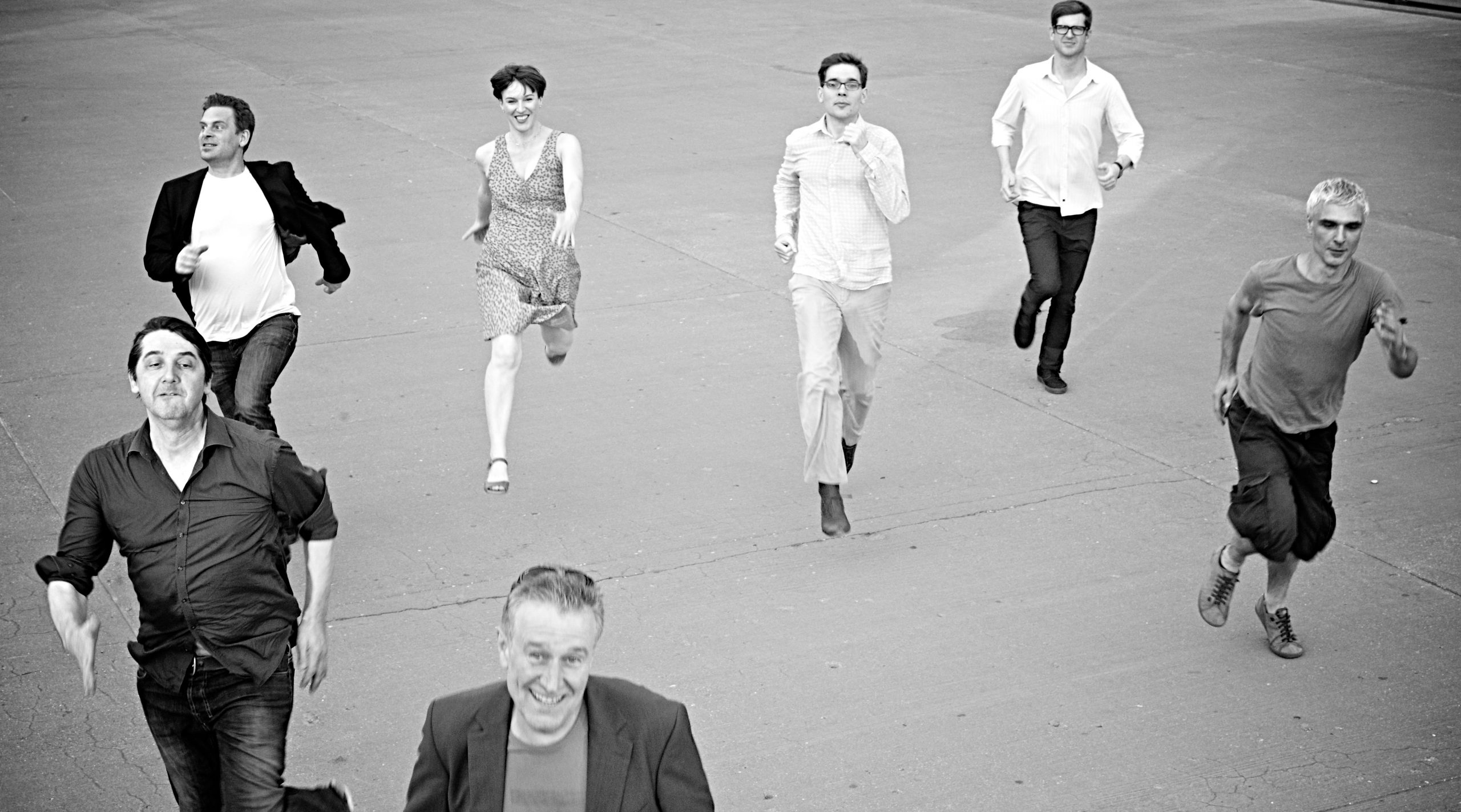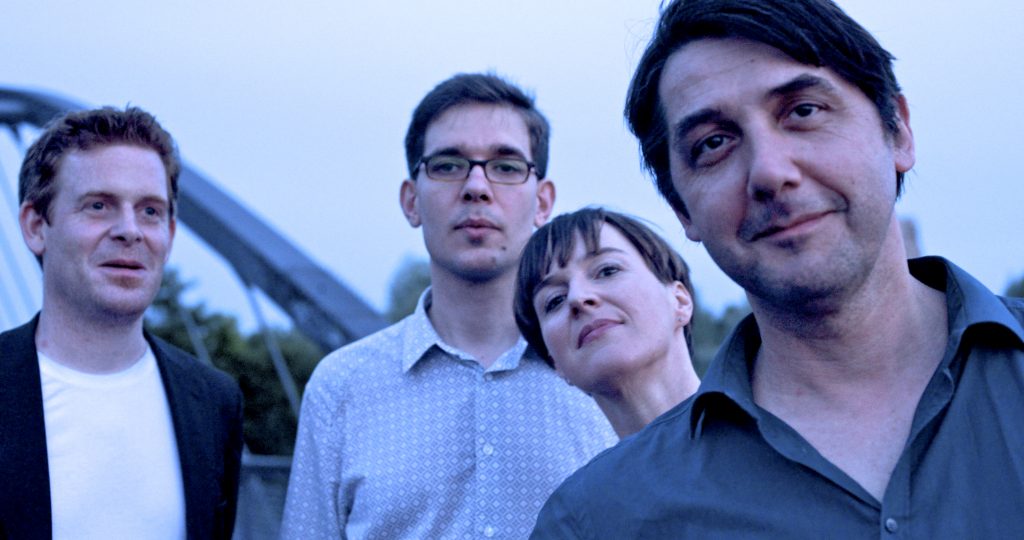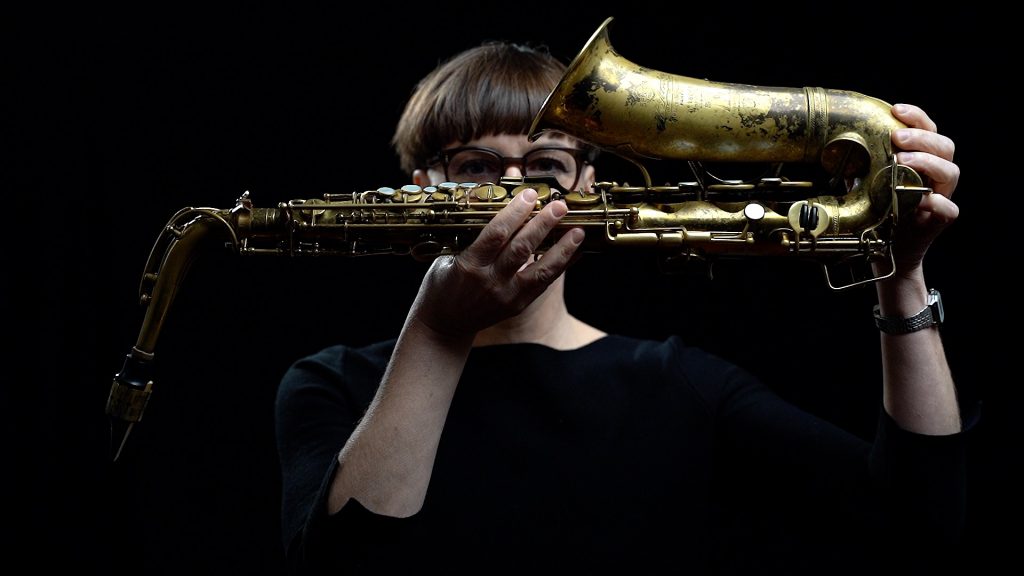
Silke Eberhard — Alto Saxophone
The Berlin saxophonist is active in the fields of jazz, improvised music and interdisciplinary projects since 1995. In addition to her own ensembles like the Silke Eberhard Trio and Potsa Lotsa, she is a member of I Am Three, Nikolaus Neuser 5tet, Hannes Zerbe Jazz Orchester, Hans Lüdemann TransEuropeExpress, Wayne Horvitz European Orchestra. She plays with musicians of the international like Maggie Nicols, Aki Takase, Gerry Hemingway, David Liebman, Ulrich Gumpert, Dave Burrell, Sandy Evans, Mike Reed and many more.
She was Artist in Residence in Willisau/CH, at the Peter Kowald Gesellschaft/Ort in Wuppertal and at Elastic Arts in Chicago/USA and has received several awards such as the 10th Jazzpott 2007, the internationaler Jazzpreis der Nürnberger Nachrichten 2011 and the Jazzpreis Berlin 2020. Tours and guest performances took her through Europe, Middle East, North Africa, the USA, Canada, Brazil, Japan, China, Australia. From 2004 to 2005 she was a guest professor at the Pontificia Universidad Javeriana de Bogotá in Colombia. CDs on labels like Jazzwerkstatt, Intakt, Not Two, Leo document her work.

Jürgen Kupke — clarinet
studied from 1977 to 1981 at the Hochschule für Musik Hanns Eisler in Berlin (classical music, majoring in clarinet) and was solo clarinettist at the Theater der Stadt Brandenburg from 1981 to 1987, and saxophonist/clarinettist at the small stage DAS EI at the Friedrichstadtpalast in Berlin from 1987 to 1991. Since 1992 he has been a freelance studio and theatre musician (Deutsches Theater, Berliner Ensemble, Maxim Gorki Theater, among others), as well as a teacher for clarinet at the music schools Berlin Friedrichshain-Kreuzberg and Paul Hindemith Berlin Neukölln. Projects and concerts with Ernst-Ludwig Petrowsky, Ulrich Gumpert, Johannes Bauer, Willem Breuker, Uschi Brüning, Lauren Newton, Elliot Sharp, Gebhard Ullmann, Volker Schlott, Misha Mengelberg, David Tronzo, Phil Minton and others. He has played at numerous festivals such as the Jazzfest Berlin, Moers Festival, Le Mans Jazz Festival, Météo Mulhouse, Jazzdor and many others. Tours and concert tours have taken him to many European countries, several times to the USA, Canada, Mexico, China and Israel.
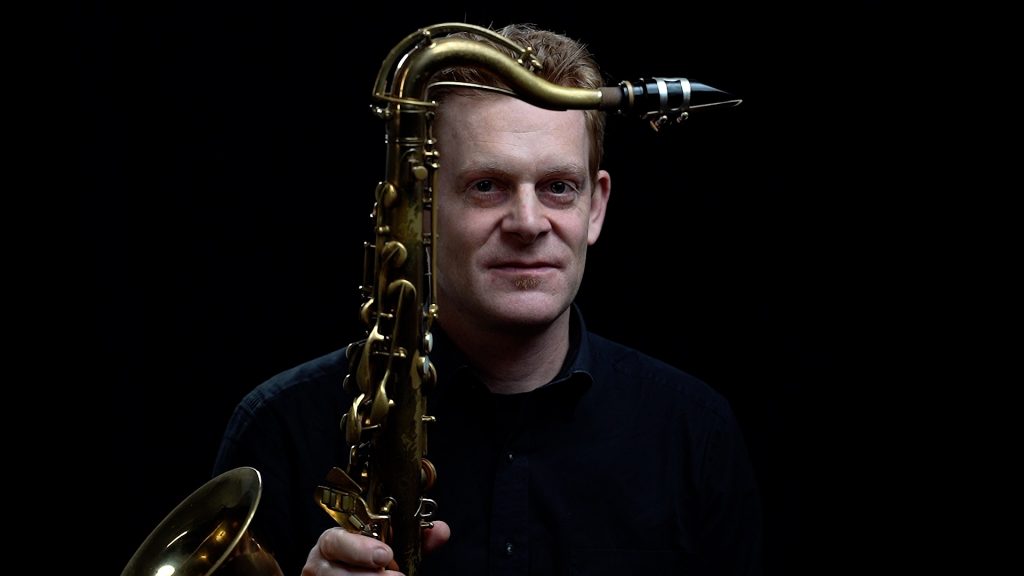
Patrick Braun — Tenor Saxophone
studied saxophone in Berlin at the Hochschule für Musik Hanns Eisler and has since been active in many different formations. In addition to his diverse studio and theatre activities, Patrick Braun plays in bands such as the Toughest Tenors, the Berlin Jazz Orchestra, the Berlin Hot Jazz Band, the Savoy Satellites, Kind of Dukish and Blue Ribbon.
In this context he has worked with artists such as the New York Voices, Ernst-Ludwig Petrowsky, Ruth Hohmann, Matthew Herbert, Ack van Rooyen, Dieter Hallervorden, Manfred Krug, Patti Austin, Paul Kuhn, Hugo Strasser, Jiggs Whigham, Gitte Hænning and others.
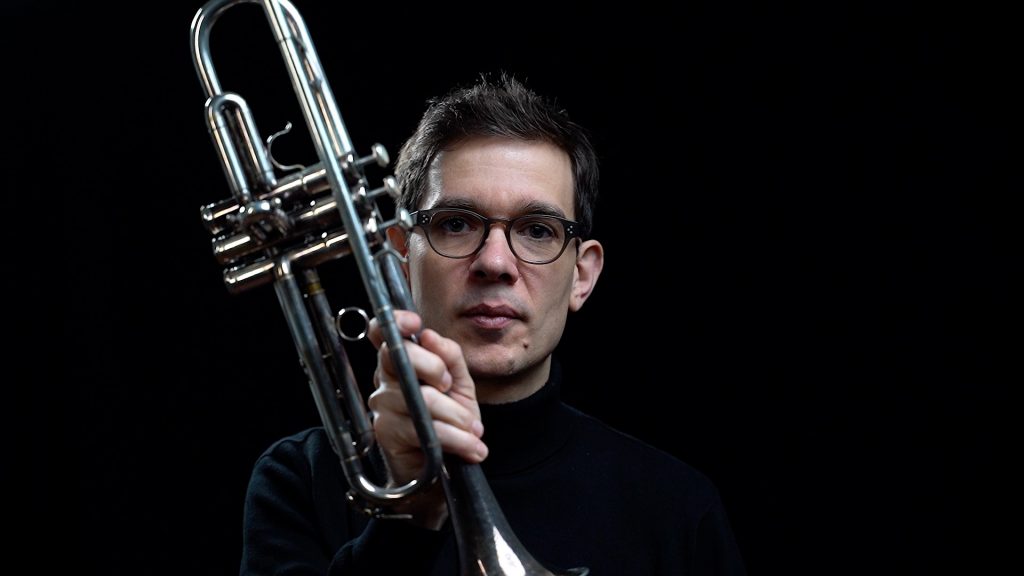
Nikolaus Neuser — trumpet
studied at the Folkwang University in Essen with Uli Beckerhoff. He currently works with I Am Three, his quintet, in trio with Richard Scott and Alexander Frangenheim and is a member of the ensembles Fun Horns, the Hannes Zerbe Jazz Orchestra and the Berlin Jazz Orchestra.
Nikolaus Neuser has performed and/or recorded with numerous artists, including Matana Roberts, Benny Bailey, Joe Morris, Matthew Herbert, Nate Wooley, Marshall Allen, Satoko Fujii, Ernst-Ludwig Petrowsky, Peter Fox, Seeed, Miss Platnum and can be heard on over 50 CDs to date. Tours and guest appearances have taken him through Europe, to China, Thailand, Vietnam, North Africa, Lebanon, Jordan, Turkmenistan, Kazakhstan, Kyrgyzstan, Saudi Arabia and Colombia, where he also taught as a guest professor at the Pontificia Universidad Javeriana de Bogotá.
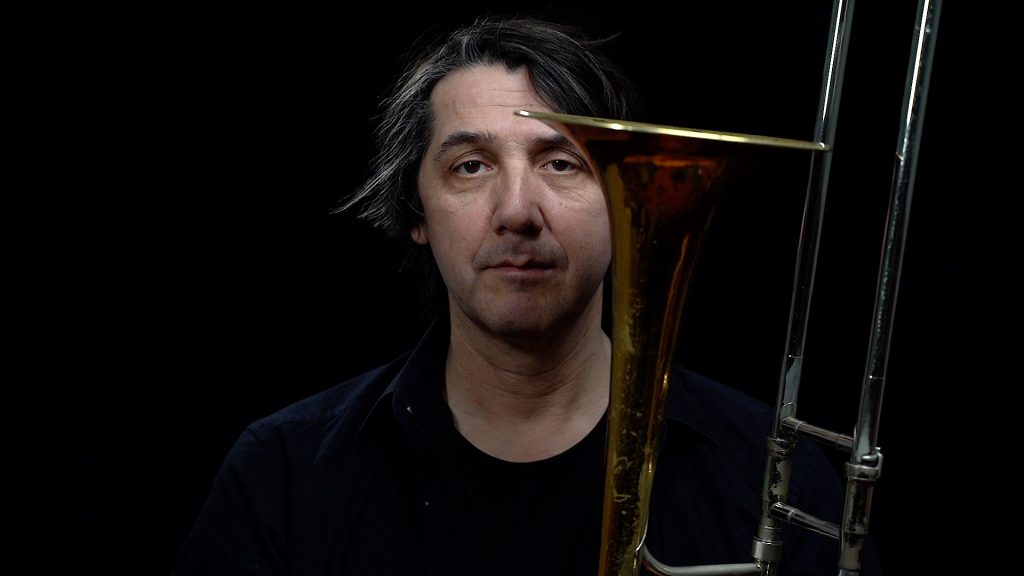
Gerhard Gschlößl — Trombone
Gerhard Gschlößl grew up in Mainburg, Lower Bavaria, studied trombone and composition in Würzburg and has lived in Berlin since 2004. The trombonist & sousaphonist belongs to a new scene that has successfully freed itself from the traditional labels of jazz and moved into a wide field of improvised music.
Ulrich Steinmetzger about Gerhard Gschlößl: »Very agile, muscular and close to the respective base, the trombonist has developed his personal style. Nothing here is cosmetically polished or ambitiously overdone. His music is believable because it comes with rough edges, because it does not hide the dirt that is part of life. This is neither strict mainstream nor pure avant-garde. You hear the where from and you sense a where to.«
Cooperations with: Albert Mangelsdorff, Sam Rivers, Perry Robinson, Wayne Horvitz, Günter »Baby« Sommer, Billy Hart, Aki Takase, Michael Mantler, Karl Berger, Marshall Allen, El Gallo Rojo, Alexander von Schlippenbach, Rudi Mahall, NDR Big Band, Dt-Frz Jazzensemble, Sabir Mateen, Kammerensemble Neue Musik Berlin, and many others.
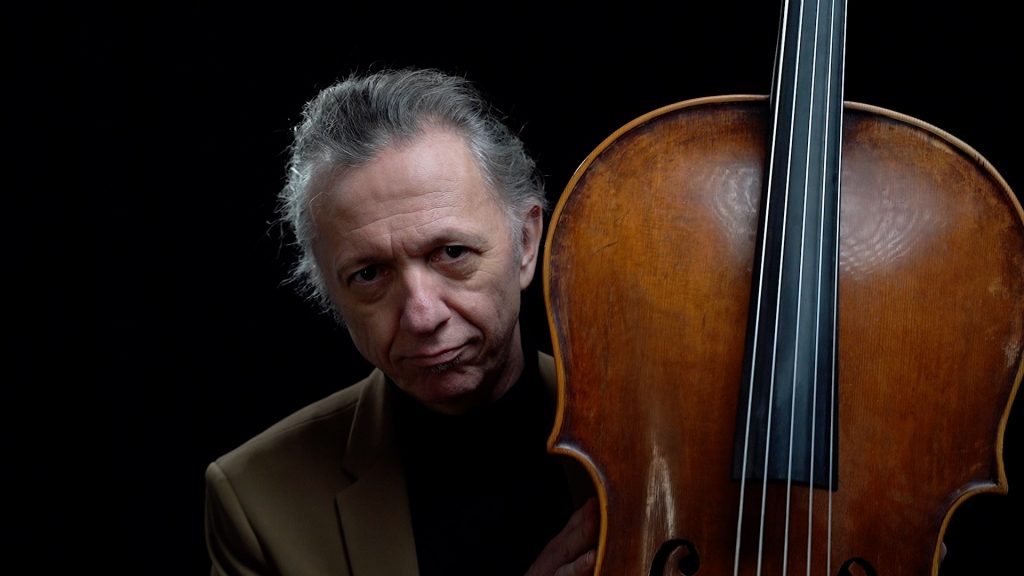
Johannes Fink — Cello
after ten years of training as a drummer, he learned to play the piano and guitar. Autodidactically, he developed his own unique sound on the double bass and the five-string cello (fourths tuning). Since 1995 he has been living as a musician and composer in Berlin, where he has been touring the whole world with several bands, e.g. Azerbaijan, Athens, Amsterdam, Bandung, Estonia, Geneva, Hanoi, Jakarta, Kuala Lumpur, Lisbon, Los Angeles, Manila, Paris, Pori, Rome, Rotterdam, Singapore, Surabaya, Vienna, Zurich, Cyprus. He is currently active with the following bands: Rolf Kühn Unit, Aki Takase Japanic, Nicolas Anadolis Trio, Heinz Sauer-Daniel Erdmann Quartet. Collaborations with Lee Konitz, Alexander von Schlippenbach, Tim Berne, Kurt Rosenwinkel, Michael Wollny, Till Brönner, Joachim Kühn, Conny Bauer, Ack van Rooyen, Rudi Mahall, Thomas Stanko, Louis Sclavis, Gebhard Ullmann, Greg Cohen, and many more.
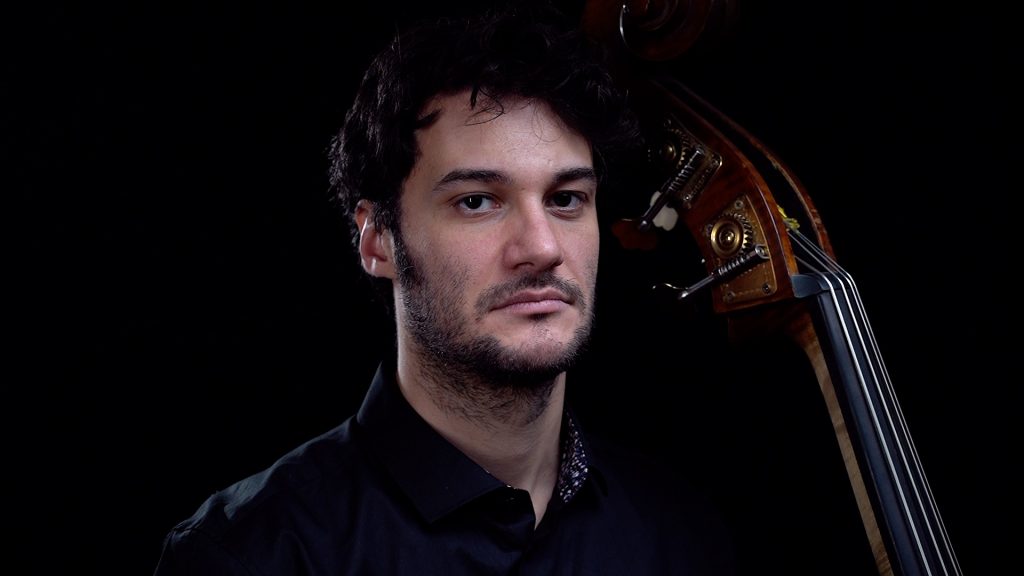
Igor Spallati — bass
born 1985 in Perugia (Italy), started playing the clarinet at the age of 11. At 15 he added the electric bass and at 19 the double bass. From 2005 to 2009 he studied classical double bass with Silvio Bruni at the Istituto Superiore di Studi Musicali in Terni. Later he continued his classical studies with Franco Petacchi at the Accademia Walter Stauffer in Cremona. In 2010 he moved to Berlin to further his studies at the Jazz Institut Berlin. There he studied with Greg Cohen, John Hollenbeck, Kurt Rosenwinkel and others until his graduation in 2014. He is a versatile musician, has gained experience in several musical styles and has played on stages throughout Europe, Russia and Japan (e.g. Konzerthaus Berlin, Suntory Hall Tokyo, Umbria Jazz Festival, Jazz Baltica). Spallati has worked with such renowned artists as Nasheet Waits, Billy Hart, Ambrose Akinmusire, Fred Hersch, Joe Chambers, Lenny Pickett, Mike Richmond, David Gilmore, Elias Stemeseder, Dado Moroni, Joe Hisaishi, Louis Bacalov, Nicola Piovani, David Russel, Marco Socias, Pietro Tonlo, Gabriele Mirabassi.
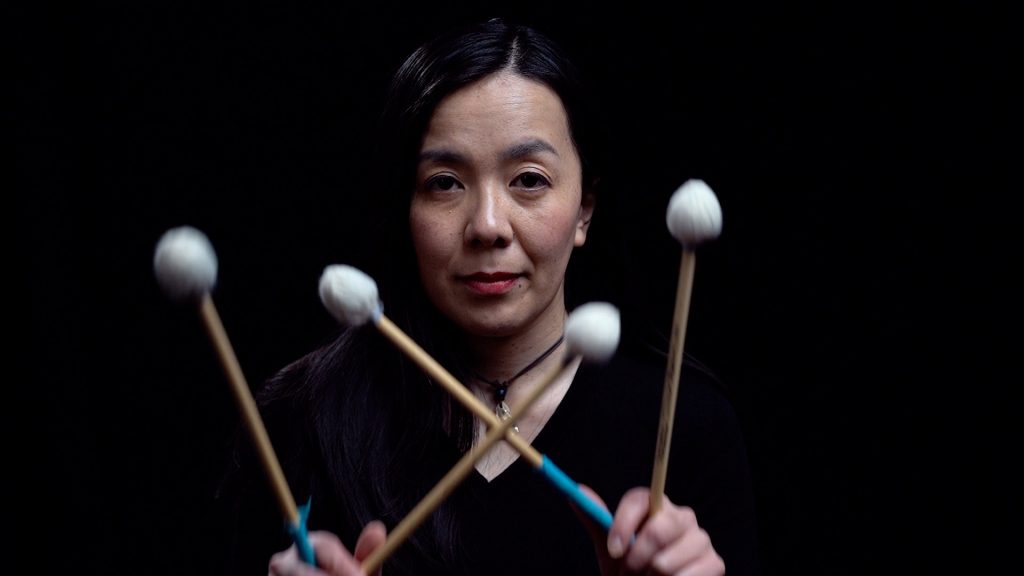
Taiko Saito — Vibraphone
born in Sapporo, studied at the Toho School of Music with Prof. Keiko Abe and with Prof. David Friedman at the Universität der Künste Berlin.
Saito has performed as a soloist with the Sapporo Symphony Orchestra, among others, and appeared at various festivals. She is a member of Trio kokotob, the Berlin Mallet Group and Nurit Stark’s Ensemble. She has released several CDs with her projects on labels such as Pirouet, cleanfeed etc.
Taiko Saito has won numerous prizes, including first prize at the Concours International de Vibraphone Claude Giot 2005 and third prize at the World Marimba Competition 1996. She gives master classes and workshops and was a jury member for the Concours International de Vibraphone.
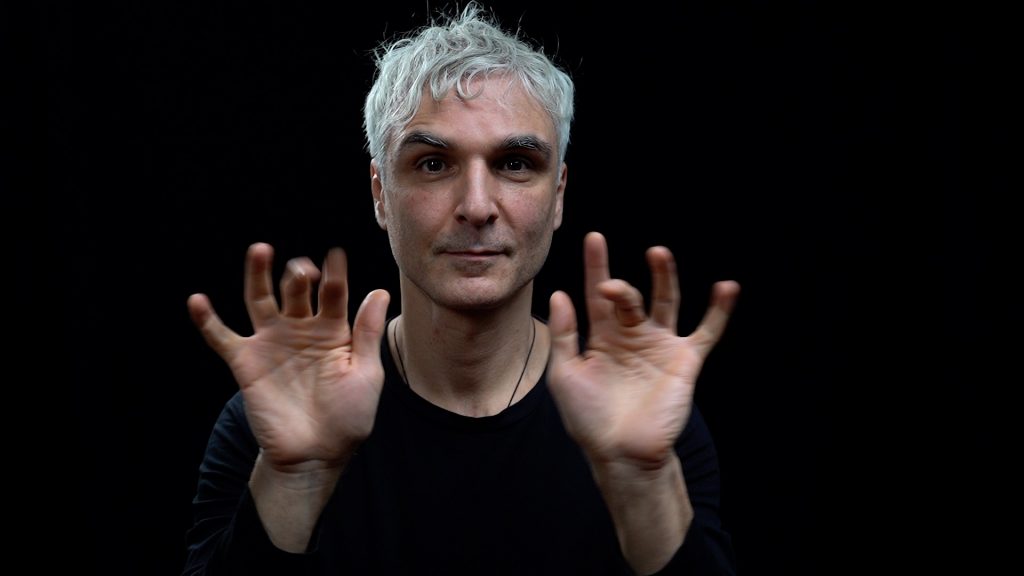
Antonis Anissegos — Piano
works as composer, pianist (interpreter of historical to contemporary music), improviser and electronic musician. In 1991 he received the piano diploma from the Thessaloniki State Conservatory of Music. He then studied in Budapest, Vienna, Cologne (composition diploma 1997) and from 1998 to 2001 as a master student of Walter Zimmermann at the Universität der Künste Berlin. Anissegos works in several projects, including the Ensemble European Music Project, the Ensemble Junge Musik, the Geschwistertrio IAMA, the groups Grix, Lynx, KAYA, ΣΩΜΑ, ddaA and Card Castle. He has been working with the dance group adLibdances since 2007 and has also participated in numerous projects and released over 40 CDs in the field of contemporary, improvised and electronic music.
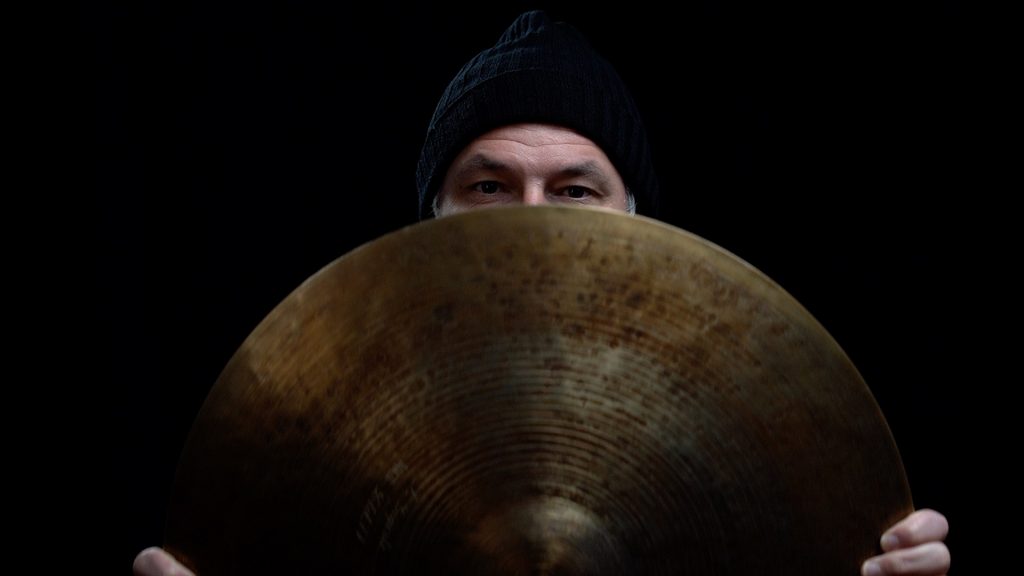
Kay Lübke — percussion
came via Frankfurt and Mainz to Berlin at the end of the 90s to study at the Hochschule für Musik Hanns Eisler. He is a member of numerous projects, together with artists such as Ernst-Ludwig Petrowsky, Uschi Brüning, Uli Gumpert, David Liebman, Majid Bekkas, Henrik Walsdorf, Christof Sänger, Georg Boeßner and Uli Kempendorff, all of them documented on CDs and leading to concert tours and festival engagements in other European countries, Israel, Morocco, Egypt, Azerbaijan, China, Canada and the USA. He shared the stage with John Schröder, Demba Nabe, Till Brönner, Shabaka Hutchings, Richie Cole, Kris Davis, Lyambiko and Gitte Hænning, among others. He is also active at various Berlin theatres, including the Volksbühne with the Sir Henry Trio, the Schaubühne am Lehniner-Platz, the Festival Spielzeit Europa, the Berliner Ensemble and Tanzplan Dresden. In 2008 he won the Berlin Senate’s Studio Prize with the band Croomp and in 2009 with Stephen Brandon, and in 2013 again with his own project Slowboy (with Jan von Klewitz and Wolfgang Roggenkamp).
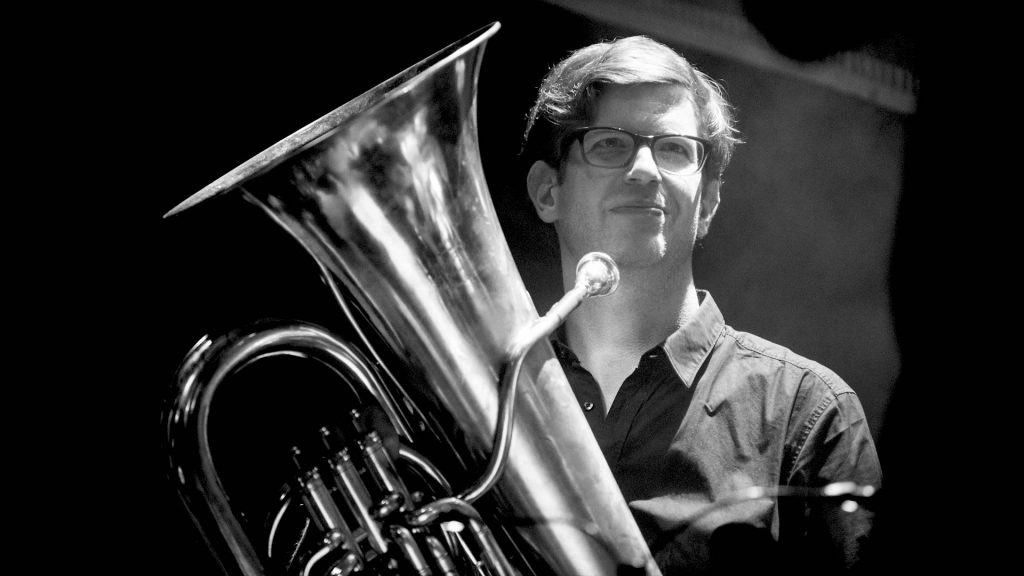
Marc Unternährer — Tuba
born in 1975, studied music in Lucerne with tuba as his main subject. Since then he has been a freelance tuba player and has a wide range of activities. He has had an intensive exchange with Chicago musicians since his stay in 2002 in the Lucerne studio in Chicago. Other important collaborations for him were and are with Albin Brun, Ruedi Häusermann, Erika Stucky, Barry Guy, Markus Lauterburg, Simon Hari (alias King Pepe), Matto Kämpf, Gerry Hemingway, Manuel Troller, Hans-Peter Pfammatter, Fred Lonberg-Holm, Josh Berman, Keefe Jackson, Frank Rosaly, Hans Hassler, Julian Sartorius, the Ensemble Phoenix, Miriam Sturzenegger, Sebastian Strinning and many others; quite a few of them are documented on recordings. He currently plays in the following bands: Le Rex, Trample of Love, Looty Trio, Bubbles and Bangs, Blue Shroud Band, Frode Gjerstad Tuba Trio and the NAH Quartet. The Mullbau, a space for improvised music, which he co-initiated, received a Lucerne contribution as well as the Junge Ohren-Preis for the children’s concert series. This was followed in 2014 by the Luzerner Werkbeitrag and a stay at the Central Swiss studio in Berlin. Since 2015, he has been the programme director of the Stanser Musiktage and teaches at the Hochschule Luzern and the Hochschule der Künste Bern.
